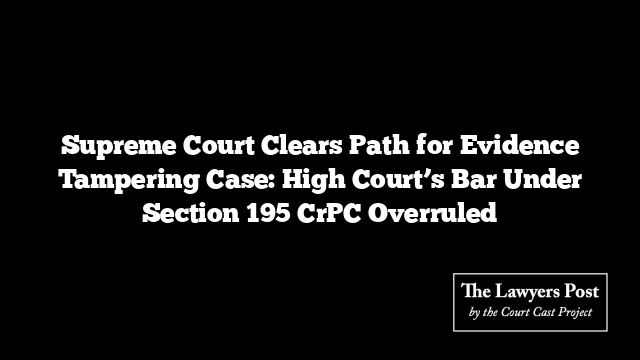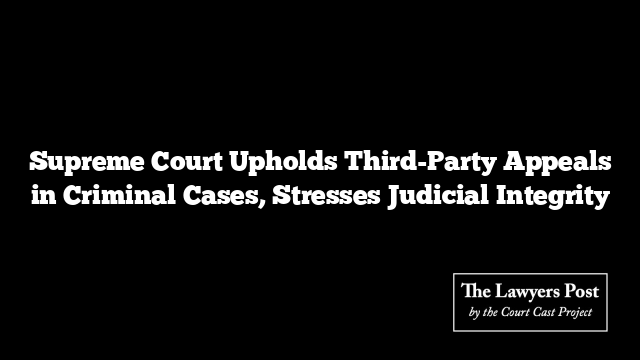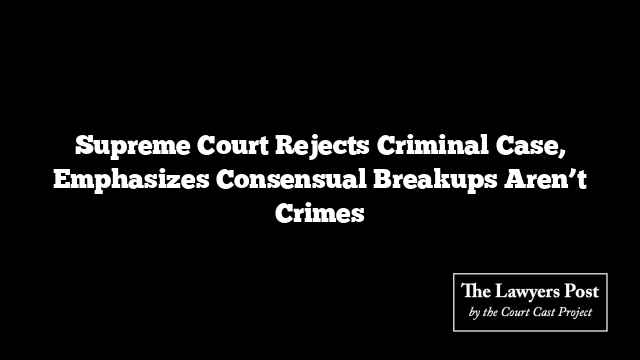In a significant ruling, the Supreme Court has reinstated criminal proceedings against Kerala MLA Antony Raju in an evidence tampering case, dismissing the applicability of Section 195(1)(b) of the Code of Criminal Procedure (CrPC). The Court held that the High Court’s direction for an investigation constituted a judicial order, negating the procedural bar.
A bench comprising Justices CT Ravikumar and Sanjay Karol observed that the case stemmed from a 1991 Kerala High Court judgment ordering an investigation into alleged tampering of evidence in a narcotics case. The Supreme Court emphasized that the judicial directive, rather than a private complaint, initiated the proceedings, thereby circumventing Section 195’s restrictions.
The Allegations: Evidence Tampering in Focus
The case centers on accusations from 1990, involving Antony Raju, then a junior lawyer. He allegedly altered a piece of evidence—a pair of underwear—linked to a drug case, rendering it ineffective in implicating the accused. This tampering was reportedly part of a conspiracy involving Raju and a court clerk.
After a vigilance inquiry, a chargesheet was filed in 2006. In 2022, the Kerala High Court quashed the criminal proceedings, citing Section 195’s procedural bar, but simultaneously allowed for a fresh investigation.
Supreme Court’s Rationale
Rejecting the High Court’s stance, the Supreme Court clarified that Section 195’s bar applies only when offences occur under the court’s direct jurisdiction, with documents in its custody. It noted that the High Court’s original investigation directive was judicial in nature, rendering Section 195 inapplicable.
The judgment, penned by Justice Karol, cited earlier precedents, emphasizing that the High Court retains the authority to order investigations in the interest of justice. “The distinction between judicial and administrative orders is immaterial when the directive emanates from a court’s judicial function,” the bench stated.
High Court’s De Novo Trial Directive Upheld
The Supreme Court also upheld the High Court’s decision to order a de novo trial. Drawing from past rulings, it highlighted that retrials are permissible in exceptional cases where procedural irregularities have compromised justice.
Additionally, the Court addressed challenges to the locus standi of MR Ajayan, a co-petitioner. It ruled that Ajayan’s involvement was valid, given the broader implications of the case for judicial integrity and justice.
Broader Implications
This ruling underscores the judiciary’s commitment to safeguarding its processes from interference and reinforces the principle that judicial orders take precedence over procedural bars. The decision clears the way for renewed scrutiny of the tampering allegations, emphasizing accountability in cases affecting public trust in the justice system.





